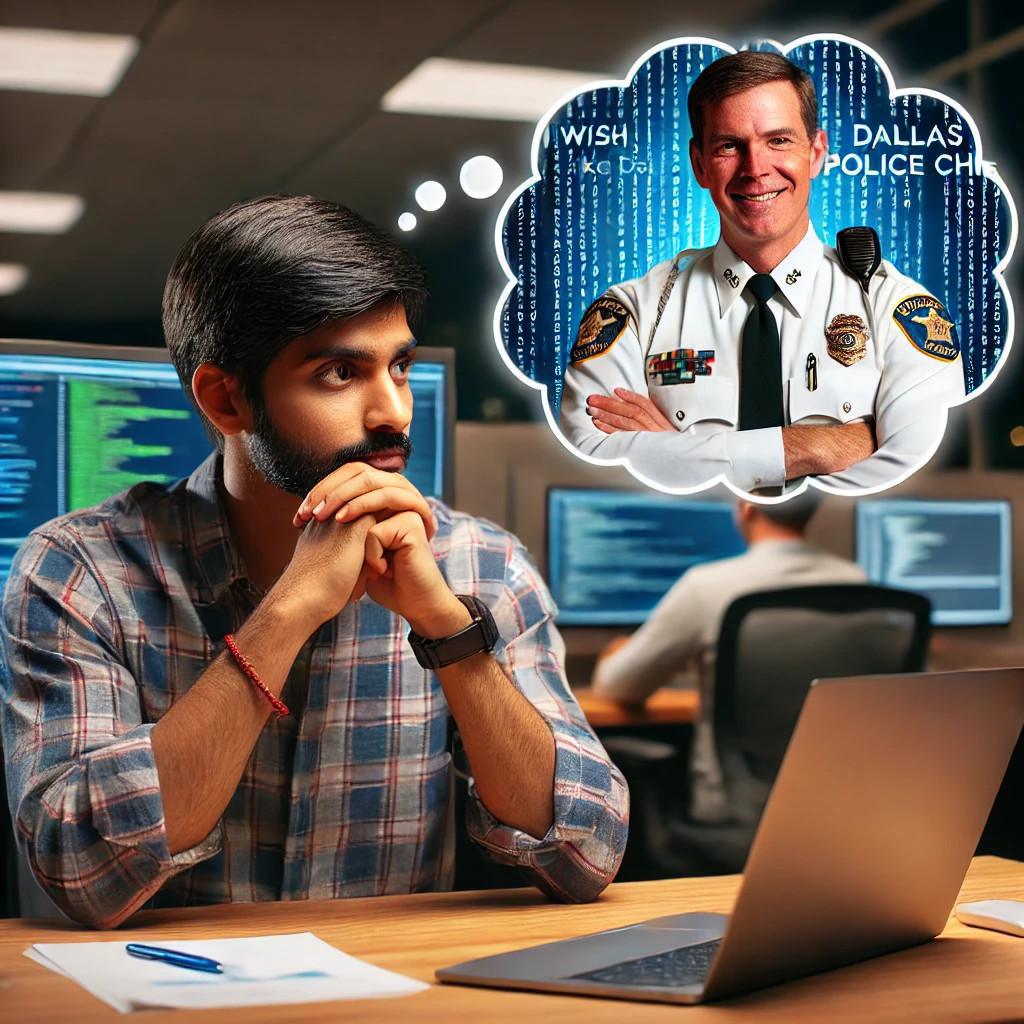DALLAS—Dallas Police Chief Eddie Garcia's intriguing contract details have captured the attention of Indian tech professionals in the USA, particularly those on H1B and L1 visas. The contrast between Garcia's lucrative deal and the struggles faced by these tech workers has sparked a buzz.
Many Indian techies come to the USA on H1B or L1 visas, often starting with lower wages and limited job mobility due to visa constraints.
While Indian techies on L1 visas cannot change employers unless they switch to another visa class like H1B, employees on H1B visas can, but the new employer must sponsor their H1B, which is increasingly difficult in today's environment.
Many students join small consultancy and staffing companies and work as contractors while their clients have agreements with these desi vendors.
These consultancies usually have contracts with lower salaries, often the minimum wage required for the location based on job profile as defined by US immigration laws.
Many get stuck with contracts with smaller IT companies, desi consultancies, or even some large India-based IT organizations. These techies usually receive higher wages only after several years or by switching companies.
Amid these challenges, the news of Dallas Police Chief Eddie Garcia's contract has taken the Indian tech community by surprise. Garcia's contract guarantees that he will remain the highest-paid police chief in Texas, with his salary set to increase if any other chief in a Texas city with a population of over one million earns more than his base salary of $306,440.40.
Additionally, Garcia receives a $20,000 annual retention incentive and a secure payout if terminated without cause.
"This kind of contract is unheard of for us," said Rajiv, an Indian software engineer in Dallas. "We work tirelessly, often with lower starting wages, and here's a public servant with a guaranteed raise clause. It's astonishing!"
The contrast couldn't be starker. While Indian techies navigate the complexities of visa regulations and job contracts, Garcia's contract not only ensures his top-tier salary but also includes safety nets like a lump sum payment if terminated without fault.
This stark difference has become a hot topic of discussion in tech forums and community gatherings.
"Garcia's deal is like a dream contract," said Priya, another tech professional on an H1B visa. "If only we had such guarantees and protections in our employment terms."
Garcia's contract, secured after interest from Houston and Austin to hire him, has highlighted the disparity in employment conditions.
For many Indian tech workers, the notion of a guaranteed raise tied to the highest salaries in their field is almost unfathomable.
Key Points:
- Indian techies on H1B visas often start with lower wages and have limited job mobility.
- Garcia's contract ensures he remains the highest-paid police chief in Texas, with automatic raises to exceed any higher salaries.
- The contrast between Garcia's lucrative deal and the struggles of H1B workers has sparked significant discussion.
This unusual juxtaposition between the secure, highly rewarding contract of a police chief and the often precarious situation of highly skilled tech workers has struck a chord. It's a vivid reminder of the varied landscapes of job security and compensation across different professions in the USA.


